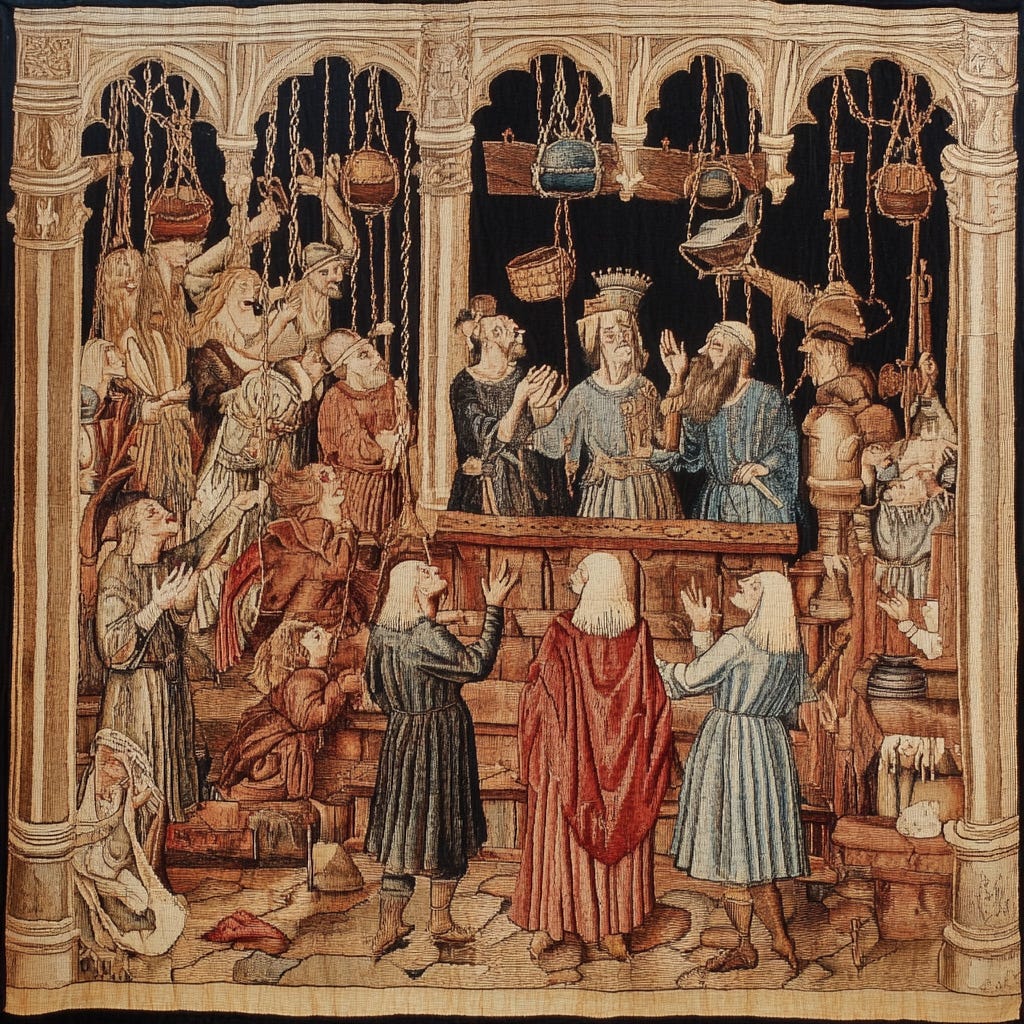Righteous Misery is the Devil
Not awareness of the devil but the devil itself
A common meme these days is that overwhelming misery is completely justified - to be miserable is to be awake, alive, properly attuned to the horrors and deformities of the world. Misery is the proof and the price of righteousness, of having a functioning heart and a functioning brain.
Overwhelming misery may be popular, but I don’t think it is justified. I DO think that it is compelled by different and deeper motivations than those which make us our best selves.
The first of these is our desire for superiority, to not just be good but to be better than someone else. To be better than someone else is to be higher up the hierarchy of life, closer to God, farther from Death. We understand ourselves by what we are not, by who we are not. We are the good and They are the bad, We are good because We are better than Them. So, overwhelming misery becomes proof of our superiority over the people who are not miserable. We the miserable know that happiness is a sham, built upon ignorance and exploitation. Misery is proof that you reject joy’s false facade. To feel joy is to turn away from the suffering of the world, the suffering that demands your immediate attention and action.
That leads to the second motivation for misery, our desire for significance. Every Christian generation since Christ has felt the impending end of history through rapture. Every socialist generation since Marx has believed that we are one revolution away from paradise on earth. No amount of predictive failure has pried away the desire for people to believe that we alive today are more important than anyone who has come before us and anyone who will come after us, that we live in the End Times or Late Stage Capitalism. Every bad thing that happens is proof that this world is about to collapse and that we righteous few will usher in the new age of perfection.
Superiority and significance are human reactions to our finite mortal state - they are ways that we scramble away from Death and grasp for God. “God” here can mean a personal metaphysical entity, or it can stand for our “goodness”, “eternal life”, everything that we find worthy of hoping for. The problem arises when righteous misery obscures its own origins in these drives, when it prevents us from acknowledging the difficult facts of our existence. The problem continues when our righteous misery justifies the commission of atrocities.
If we believe that we are privileged in our misery, that our misery makes us more human than the people who are not miserable, that the people who are not miserable are the very ones responsible for our misery, then all actions against them are justified. They are subhuman demons, agents of evil, parasites to be crushed with disgust. The outcome of righteous misery is violent revolution, a spasm which fully believes that to find our way to paradise we must first take the world all the way to hell.
Revolutions inevitably turn on their own, of course. Today’s freedom fighters are tomorrow’s static establishment, and the day after that they’re the ones facing the gulags and the guillotines.
Righteous misery is a highly-disguised form of self-obsession, irresponsibility disguised as responsibility, paralysis masquerading as engagement. Its most primal root - one deeper than superiority and significance - is self loathing. If we hate ourselves we will hate everything responsible for creating us. We will hate this world for hosting us, our family for forming us, our country for shaping us. Our self-hatred will justify any and all destructive activity, destruction of ourselves and destruction of other human beings.
Self-loathing, unlike finitude and death, is horribly optional. Horrible in that we can stop, but we don’t want to. We don’t even want to acknowledge our own self-loathing. It’s the world’s fault for being so full of suffering. It’s the corrupt system’s fault for inventing fake ideologies which it put into my head.
That’s the great headwind for any attempt to make peace with your existence - the incentives run hard against it. It’s the great task of all lives to find common humanity with those who came before and those who are yet to come, to acknowledge that we aren’t any better or any worse. It’s the great task of all to live in peace with the inevitability of failure and death. It’s the great task of all to learn to love ourselves, exactly as we are. It can be done. Acknowledging what makes doing so seem difficult can go a long way to making it become possible.


